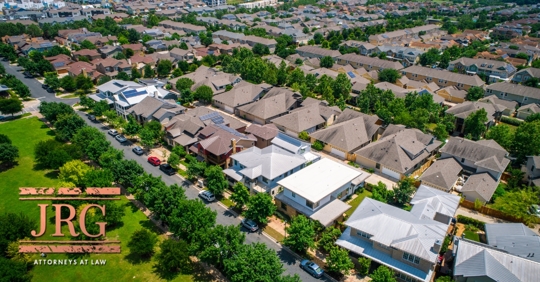Navigating local zoning laws can feel overwhelming, but understanding these regulations is crucial for property owners and real estate investors in Monterey County, CA. Zoning laws affect how your property can be used, which directly ties into property values, development opportunities, and compliance requirements. By familiarizing yourself with Monterey County's zoning structure, you can ensure that your plans align with local regulations and avoid unnecessary complications.
This guide will walk you through the essentials of zoning laws in Monterey County, empowering you to make informed decisions about your property.
What Are Zoning Laws?
Zoning laws are local regulations that govern land use. These rules outline how certain parcels of land can be utilized for residential, commercial, agricultural, or industrial purposes. They also establish specific guidelines regarding building heights, lot sizes, setbacks, signage, and other property-specific factors.
Zoning ensures that development occurs in an organized manner, maintaining community aesthetics, functionality, and environmental standards.
Key Zones in Monterey County
Monterey County has several zoning designations, each tailored to support the diverse makeup of the area, from coastal regions to agricultural valleys and bustling town centers. Some common zones include:
1. Residential Zoning (R)
Residential zones cater to housing developments and establish guidelines such as minimum lot sizes, building density, and permissible structures (e.g., single-family homes, duplexes). Certain subdivisions also have additional restrictions, such as design guidelines, to maintain neighborhood character.
2. Commercial Zoning (C)
Commercial zoning within the county allows for businesses, retail shops, restaurants, and office spaces. These zones are typically found in town centers and along major roadways, where access to customers is ideal.
3. Agricultural Zoning (A)
Given Monterey County’s strong agricultural industry, many parcels of land fall under agricultural zoning. These zones aim to preserve farmland and allow activities like crop production, livestock grazing, and vineyard operations while restricting non-agricultural developments.
4. Coastal and Special Resource Zoning
Properties near the coast may fall under Coastal Zone designations, which involve additional oversight administered by the California Coastal Commission. Regulations in these areas are focused on preserving natural resources, coastal access, and environmental sustainability. Additionally, certain areas may include special resource zoning to protect wetlands, wildlife habitats, or scenic views.
Why Zoning Compliance Matters
Compliance with zoning regulations is non-negotiable for property owners in Monterey County. Ignoring restrictions or proceeding with unauthorized modifications can result in severe consequences, including heavy fines, stop-work orders, or even legal disputes.
Furthermore, zoning also impacts property resale value. Investors or buyers often prioritize properties with zoning permissions that align with their intended use. Zoning violations or unresolved discrepancies may deter potential buyers and complicate resale efforts.
Tips for Navigating Zoning Regulations
1. Review Your Property's Zoning Code
The first step is determining which zoning designation applies to your property. You can typically obtain this information through Monterey County's zoning maps or by contacting the local Planning Department.
2. Understand Permitted and Conditional Uses
Each zoning designation includes a list of permitted uses and conditional uses. Permitted uses are activities allowed outright, while conditional uses require prior approval, often through a special application process or public hearing.
For example, adding a rental unit to your residential property may require conditional use approval.
3. Collaborate with Local Authorities
Monterey County’s Planning Department plays a pivotal role in guiding property owners through zoning regulations. Their team can answer specific questions, clarify requirements, and provide advice on necessary permits for your project.
For properties in the Coastal Zone, additional review may be required by the California Coastal Commission for compliance with state-level regulations.
4. Hire Professional Help
Dealing with zoning laws can quickly become complicated, especially for large-scale development projects or properties in sensitive areas like coastal regions. Hiring a land-use attorney, zoning specialist, or other qualified professional can provide peace of mind and streamline the approval process.
5. Stay Updated on Zoning Changes
Zoning codes evolve periodically to meet the community’s changing needs. Stay informed about updates to ensure that your property remains compliant or to take advantage of new opportunities that align with your long-term goals.
Getting Help From Monterey County Land Use Attorneys
Zoning laws are often seen as restrictive, but they serve an essential purpose. By balancing development and preservation, these regulations protect the character of Monterey County’s diverse neighborhoods while fostering economic prosperity and environmental stewardship.
At JRG Attorneys At Law, we are committed to supporting property owners and investors in navigating zoning challenges and land use hurdles. Our founding partner has been helping clients in the Central Coast for nearly four decades. We can help you, too. Together, we can help your property reach its fullest potential while contributing to the vibrant local community.
If you need personalized assistance aligning your goals with Monterey County zoning laws, we're here for you.
Contact us today at (831) 228-5619 for a free consultation on your land use needs.

